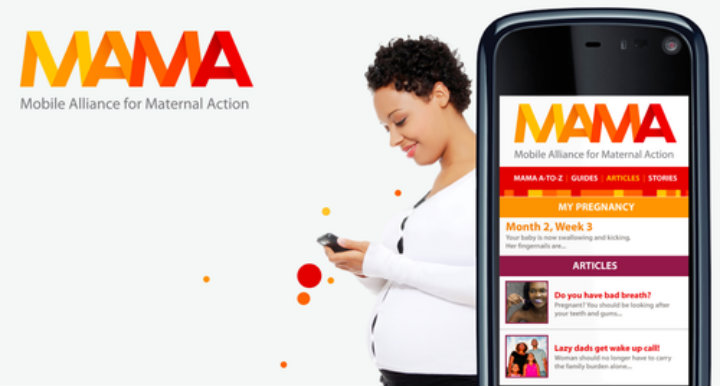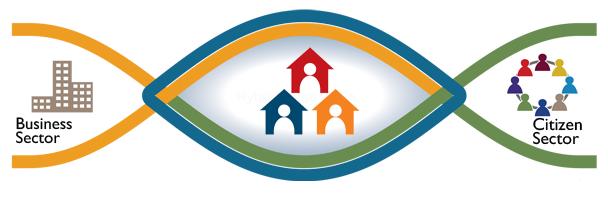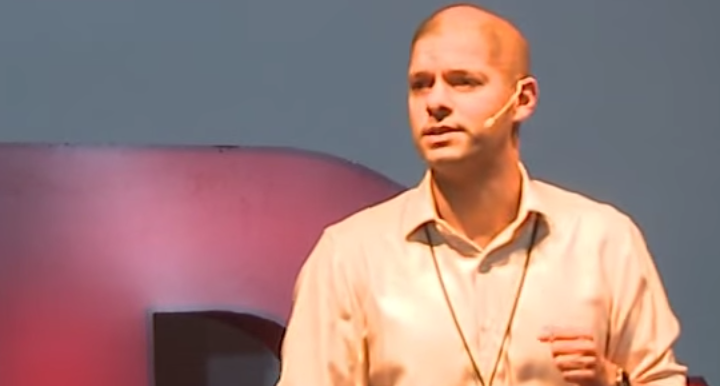Being a first-time mother is hard, even for those of us lucky enough to have our babies in developed countries. Through the fog of fatigue and the hotbed of hormones, we try to sort through the avalanche of advice and do what is best for our newborns. How much harder it must be for women who are so poor that they struggle just to survive.
This is why I was so impressed by the Mobile Alliance for Maternal Action (MAMA). They take what is universal about being a new parent and transform it to fit each country where they work. Through text or voice messages timed to the woman’s weeks of pregnancy or her baby’s age, they deliver culturally sensitive, medically approved message to the mother’s mobile phone – and to her husband and other household members too, if desired. (That way, she’s not getting one message from her phone and a different one from her mother-in-law.)
The messages tell the mother what’s going on with the baby in her womb and help her understand the symptoms she might be feeling. They also recommend actions to improve her health and that of her baby, such as getting plenty of iron or exclusively breastfeeding. I subscribed to a similar service from Johnson & Johnson’s BabyCenter when I was pregnant, and it was immensely satisfying to read that my baby was the size of an avocado (a different fruit or vegetable every week!) and that women everywhere at the same stage of pregnancy were going through roughly the same things I was.
Even the best-educated moms can use help and reminders. I was a medical journalist, but I didn’t know about one of MAMA’s messages: Talk to your baby. Luckily, my mother-in-law was staying with me, and one day I noticed that the more she chattered to my son, the more he babbled back.
MAMA targets countries where there are high maternal and child mortality rates as well as high mobile penetration rates. It has seen remarkable uptake in Bangladesh (more than 500,000 users) and South Africa (350,000), and now is launching in India. In Bangladesh, phone surveys show that MAMA subscribers have almost twice the rate of prenatal and postnatal doctor visits and giving birth in a facility, as well as increased rates of exclusive breastfeeding – all important factors in reducing the number of women and babies who die in childbirth or infancy.
But perhaps MAMA’s greatest strength is that it brings mothers together across countries and socioeconomic levels. Rather than assuming that women in developing countries need different information, it takes the BabyCenter content and localizes it – and also makes it available to other organizations that want to do similar work.
MAMA’s service recognizes that the poor are not all that different from the rest of us – biologically, they are identical, and as new mothers, they have many of the same questions and doubts. MAMA makes brilliant use of mobile technology to address their needs.
Elizabeth Howton is an online communications officer at the World Bank. Opinions in this blog post are her own and not her employer’s.
===
If you’re interested learning more about MAMA and mHealth, please join us in your upcoming courses on Mobiles for International Development and Mobiles for Public Health.



